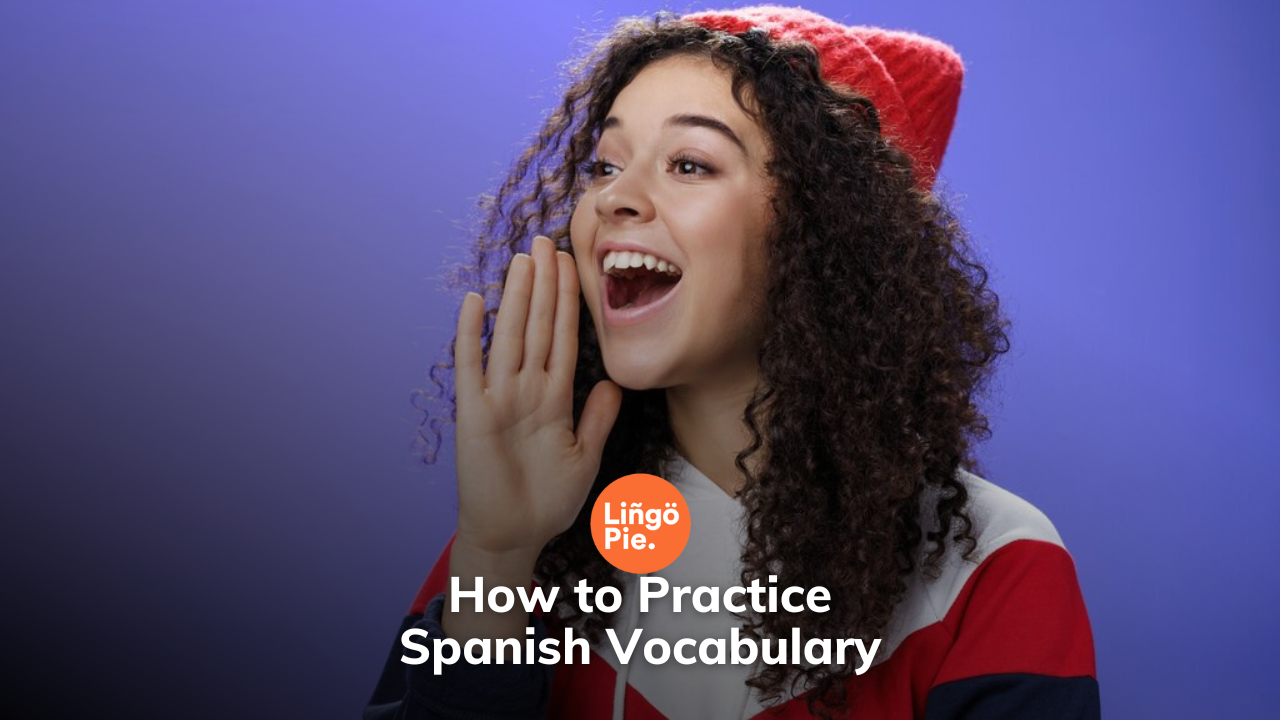Portuguese wouldn’t be Portuguese without all those strange, small and seemingly meaningless words you hear natives dropping in conversations. We call these ‘filler words’. Filler words are exactly what they sound like: words used to fill gaps in conversations.
For example, in English some common filler words are: ‘um’, ‘ahh’ ‘like’ and ‘you know’.
European Portuguese is a language with quite a few of these. They are great because they can often buy you some time when you don’t know what to say next. They don’t necessarily add meaning to the conversation but they do help conversations to flow. Being able to use them will make you sound like a real native!
Because for new students learning Portuguese filler words can be quite confusing, today we have put together a list of 14 commonly used ones for you, alongside some examples so that you can understand when and how to use them!
Table of Contents
- How to Use Lingopie to Learn Filler Words
- 14 European Portuguese Filler Words You Need to Know
- To Conclude
How to Use Lingopie to Learn Filler Words
Since it is difficult to pick up filler words when learning through textbooks and books (they are rather used in speech) I cannot recommend Lingopie enough. Lingopie gives you the opportunity to learn Portuguese by binge watching movies and series in the target language.
You will hear how European Portuguese is spoken by actual natives, including the slang words and filler words that are commonly used on a daily basis. Knowing how to use these is a vital part of becoming fluent in the language.
14 European Portuguese Filler Words You Need to Know
So, back to the main topic, here are 14 popular Portuguese filler words as well as how to use them in sentences. Take a look:
Olha

‘Olha’ comes from the verb ‘olhar’ which means ‘to look’. But when it is used as a filler word, ‘olha’ means something along the lines of ‘listen’. For example, when you want to change the topic of a conversation, you might drop an ‘olha’ before saying what you need to say.
Example: ‘Olha, eu ontem vi a Maria na festa.’ / ‘Listen, yesterday I saw Maria at the party.’
‘Olha, preferes massa ou arroz com a carne?’/ ‘Listen, do you prefer pasta or rice with the meat?’
‘Olha’ is also a great word to help you emphasize something important:
Examples: ‘Olha, isto não vai dar, temos de acabar.’/ ‘Listen, this isn’t going to work, we need to break up.’
Pronto
‘Pronto’ is a filler word that is very frequently used in Portuguese. It can be used in different ways. For example, a teacher might use ‘pronto’ when starting to teach a class:
Example : ‘Pronto, vamos começar’/ ‘Ok then, let’s get started’
So, ‘pronto’ can mean ‘ok’ or ‘ok then’.
‘Pronto’ can also be used to express when something has been completed or when you are about to leave somewhere.
Examples:
‘Pronto, o comer está na mesa. Venham comer. ’/ ‘OK, the food is on the table. Come and eat.’
‘Pronto, vou-me embora’/ ‘OK, I’m leaving.’
However, ‘pronto’ can also be used as a soothing word. When a child falls down and hurts themself, you can use the word ‘pronto’ as an ‘it’s okay’.
Então
‘Então’ is used all the time in Portuguese. And I do mean all the time! Very often, it is used at the start of a sentence as a ‘so’.
Example: ‘Então, como é que foi a escola hoje?’ / ‘So, how was school today?’
‘Então’ can also mean ‘in that case’ or ‘well then’. Look at this example:
“Eu não quero ir ao dentista!” “Então eu também não vou”/ “I don’t want to go to the dentist!” “Well then I’m also not going.”
Sometimes it is used on its own as a ‘what happened’. Example
“Não terminei o curso.” “Então?” / “I didn’t finish the course.” “(Why?) What happened?”
Tipo
‘Tipo’ is a very informal filler word used in the same way ‘like’ is used in English. It is slang so avoid using it in formal conversations!
Example: ‘Eu mandei-lhe uma mensagem, e ela tipo, nem respondeu!’/ ‘I sent her a message, and she like, didn’t even respond!’
‘Tipo’ can be used to express ‘approximately’ something.
Examples: ‘Eu vou chegar tipo às 3 horas’/ ‘I’m going to arrive at like 3 o’clock.’
‘Ela tem cabelo tipo castanho.’/ ‘She has like, brown hair.’
Fixe

‘Fixe’ is a simple but good filler word. It simply means ‘cool’ or ‘nice’.
Examples: “Hoje vamos ao cinema” “Fixe!” / “Today we’re going to the cinema.” “Cool!”
‘Ela é uma pessoa mesmo fixe’/ ‘She’s a really cool person’
Se calhar
‘Se calhar’ is simply an informal way of saying ‘maybe’.
Examples: “Ela deve ter um namorado novo.” “Pois, se calhar”/ “She probably has a new boyfriend.” “Yes, maybe.”
‘Se calhar ela quer vir connosco?’/ ‘Maybe she wants to come with us?’
Pois / Pois é
This is probably one of the most used words in the whole of the Portuguese language! It is so useful and you MUST learn it. ‘Pois’ or ‘Pois é’ best translates as ‘so it is’ or even ‘yeah, it’s true’.
It is a wonderful word to express agreement with what is being said.
Example: “Que dia horroroso. Choveu o dia inteiro.” “Pois é”/ “What a horrid day. It rained all day.” “Yeah, it’s true”.
It can also be used as an ‘ahh.. right’ when you forget and then remember something.
Example: “Queres peixe?” “Eu sou vegan, lembras-te?” “Ah pois é, desculpa”/ “Do you want fish?” “I’m vegan, remember?” “Ah right, sorry”.
Bem
The filler word ‘bem’ translates as ‘well’. It is used exactly as it would be used in the English language.
Example: ‘Bem, acho que me vou embora agora’/ ‘Well, I think I’m going to go now’
‘Bem’ can also be used to soften the blow of something:
“Ele é feio!” “Bem, tu também não és nada de especial.”/ “He 's ugly!” “Well, you’re not anything special yourself.”
Ouch!
Vá
‘Vá’ comes from the verb ‘ir’ (to go) but it is also often used as a filler word for ‘i’ll let you go now’ or ‘go on’.
Example: “Vá, a gente fala amanhã.’/ ‘go on now, we’ll speak tomorrow’
However, it can also be used as a ‘come on’ to encourage someone.
‘Vá, tens que ser forte’/ ‘Come on, you have to be strong’
Ó pá (sometimes just ‘pá’)
Pá is a wonderful little filler word used all the time in Portuguese. The closest translation in English would be ‘man’ or ‘oh man’.
Examples: ‘Ó pá, eu não sei’/ ‘oh man, I don’t know’
‘Ó pá, esqueci-me da carteira em casa!’/ ‘Oh man, I forgot my wallet at home!’
Bué

This slang word is actually of African origin but it is used frequently by younger Portuguese generations. ‘Bué’ is a slang word meaning ‘a lot’. It is usually used to emphasize things.
Examples: ‘Ela é bué gira’./ ‘She is really pretty’
‘Eu curti bué o concerto’./ ‘I really enjoyed the concert.’
I have rarely if ever heard an older person use this word, but it is useful to know its meaning in case you hear it spoken.
Okay!
Yep - the Portuguese also use ‘ok’, and we use it a lot! I probably don’t need to explain this one as it’s used exactly the same way it’s used in English.
Example: “Queres vir comigo à loja?” “Ok”/ “Do you want to come with me to the shop?” “Ok”.
“Está tudo ok?” / “Is everything ok?
Ora bem
‘Ora bem’ is a filler word meaning ‘right’ or ‘now then’ or ‘let’s see’. It’s useful for when you are trying to get someone’s attention before changing the subject of a conversation.
Examples: ‘Ora bem, agora vou começar a fazer o jantar’/ ‘Right, I’m going to start making dinner now’.
‘Ora bem, hoje vamos estudar a história de Portugal’/ ‘Right, today we’re going to study Portugal’s history’ (in the scenario of a teacher speaking to students)
Ora essa
This is a wonderful way of saying ‘no need to thank me’ in Portuguese. It is sometimes used as another way to say ‘you’re welcome’.
Look at this example:
“Obrigada pela companhia.” “Ora essa!” / “Thank you for the company.” “No need to thank me.”
However, ‘ora essa’ can also be used as a way to say ‘as if!’ or ‘the idea of it! Come off it!’. When someone says something which is difficult to believe you can drop an ‘ora essa’.
Example:
“O Pedro foi à igreja hoje de manhã.” “Ora essa!” / “Pedro went to church this morning”. “As if!”

To conclude
So today you have learnt 14 new useful filler words in European Portuguese. Some of these you may have been familiar with, others not so much. If you can learn how and when to use some of these, you will sound a lot more fluent and will be able to blend into conversations with natives!
Watching movies and series in Portuguese is a really effective way to hear how these filler words are used in conversations. Remember that with Lingopie you can do this.
You have a large selection of movies, documentaries and series to watch with the option of subtitles in both Portuguese and English so that you don’t get lost along the way.
In the meantime, happy learning!









